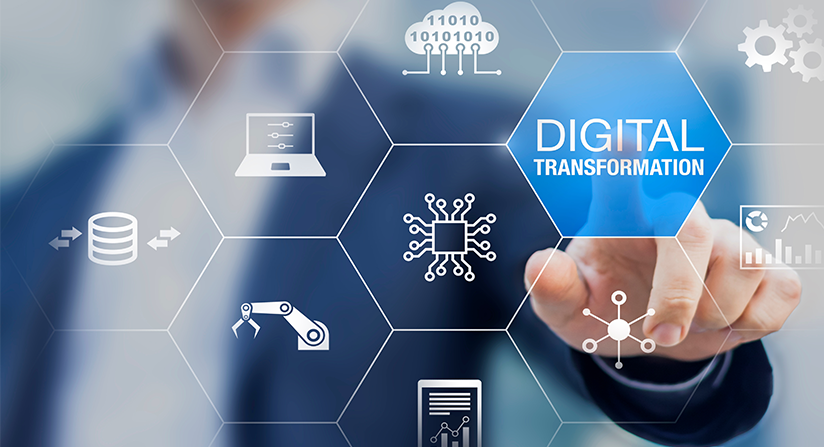
When we talk about digital transformation as it relates to doing business, we must never forget that delivering value to customers should always be the most immediate priority. This has a lot to do with the reality of dealing with customers, clients, and end-users who are digital natives, so there is a modern expectation involved as well. Enterprise resource planning (ERP) is often part of the digital transformation process, and it is important to understand the role it plays.
Basics of ERP
In the 1990s, the Gartner Group introduced ERP as part of a detailed analysis of the various business software applications used at the time. Gartner business analysts were initially interested in the 20th-century trend of the paperless office, but they quickly realized that achieving a sizable reduction of paper production would require a thorough transformation of various business processes through software solutions. The inspiration for this analysis was the digital office concept introduced by the VisiCalc productivity suite for the Apple II in the late 1970s, which predated Microsoft Office by a decade. Another source of inspiration was the organization of American office workplaces in the late 20th century, which almost invariably featured functional departments such as:
- Accounting
- Sales
- Human Resources
- Marketing
- Customer Service
- Administration
Before the ERP era, each corporate department would use one or more software applications that were seldom interoperable with others. Lack of compatibility and support meant that HR reports, for example, were created on file formats that were not compatible with other programs and systems. In those days, data operations such as import, export, and conversion took up considerable time, and things used to go wrong all the time because of confusion and reduced productivity.
There was a clear need to consolidate software applications so that they could share various common denominators in a single business suite similar to MS Office. At the time, software developers had attempted to do this with business management programs such as Sage 300, but without a true modular structure. ERP systems consist of interconnected modules that can be configured to meet a wide variety of business requirements. Their configuration is easy to adjust because they are designed to work within a flexible business structure.
Modern Definitions of ERP
The easy answer to “What is ERP?” is as follows: A suite of integrated software applications that can help business organizations manage various operational processes. If you feel that ERP is a somewhat puzzling term for a digital management system, you are not alone: Since 1998, enterprise management system (EMS) has emerged as a newer term that is more appropriate because ERP was initially chosen for a project management and accounting solution. While EMS is a more recent and accurate term, it is correct to use ERP as long as it fits the aforementioned definition. The only difference is that ERP is more commonly used when marketing these solutions to larger enterprises; EMS, on the other hand, is more commonly found in industry-specific suites.
Why Digital Transformation Begins With ERP
ERP systems should be treated as a critical first step in any digital transformation initiative. A modern business plan should dedicate a section that outlines which ERP or EMS system will be installed, configured, and deployed from the first day of operations. If you are interested in making your business processes more efficient from the beginning, you have to think in terms of automation and streamlining; these are at the heart of the ERP functionality, and they should be in place from the day you start doing business. Likewise, when your existing business needs to undergo a digital transformation to stay competitive, you want to begin with an ERP or EMS consultation.
The reason for starting with an ERP configuration and deployment is simple. Once your system is up and running, you will be able to:
- Improve customer service while seamlessly collecting useful data that can be used by your marketing and sales department.
- Reduce your IT costs when choosing a hosted ERP solution that runs in the cloud.
- Increase direct control over operations and costs.
- Take a real-time glimpse at the entire state of your business operations, along with instant accounting statements.
In the end, ERP systems will always be at the heart of any digital transformation efforts. With more than 80% of American businesses currently managing their operations through ERP and EMS solutions, you can’t afford to fall behind the competitive curve.

Aimee Garcia is a Marketing Consultant and Technical Writer at DailyTechTime. She has 5+ years of experience in Digital Marketing. She has worked with different IT companies.

